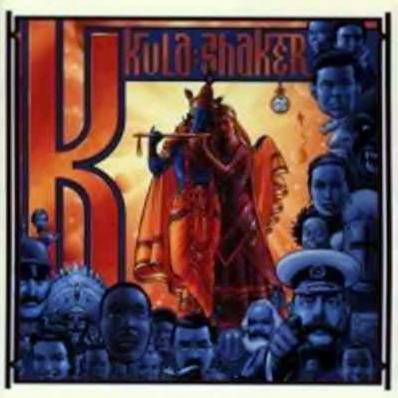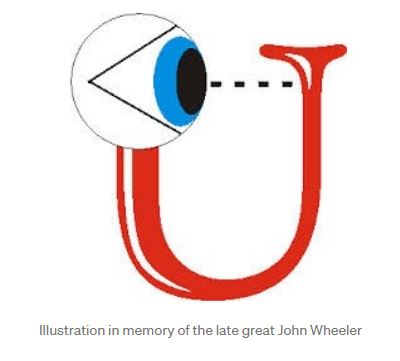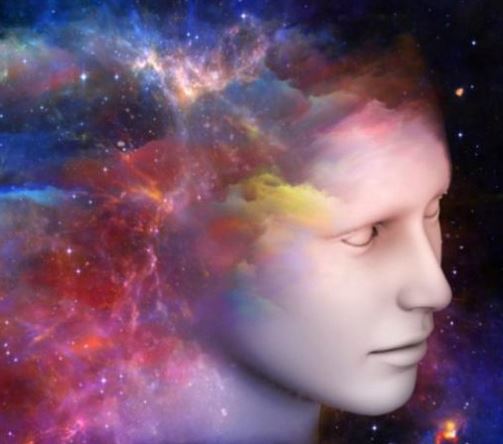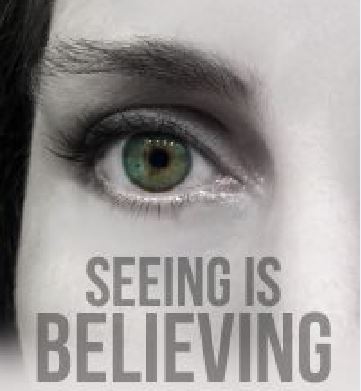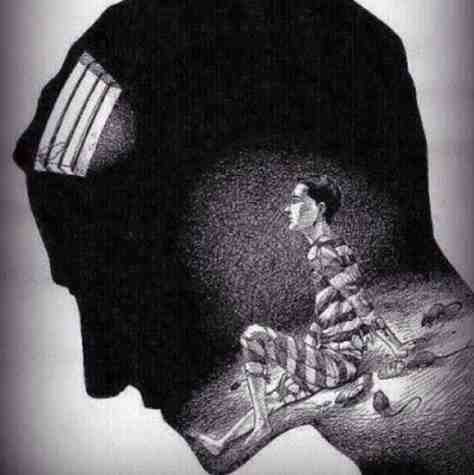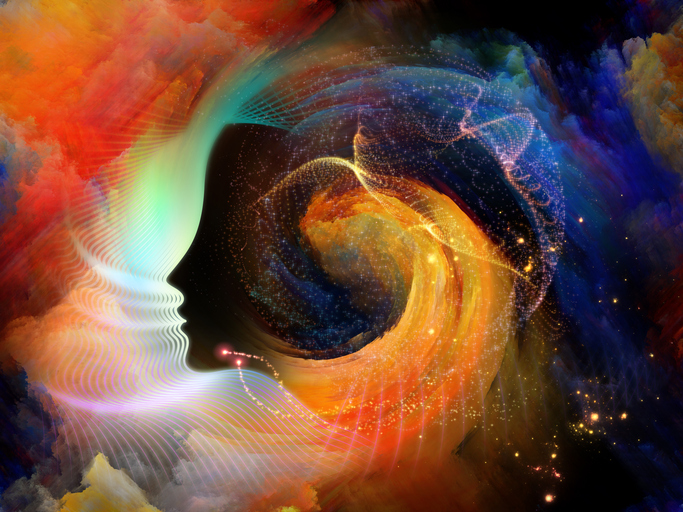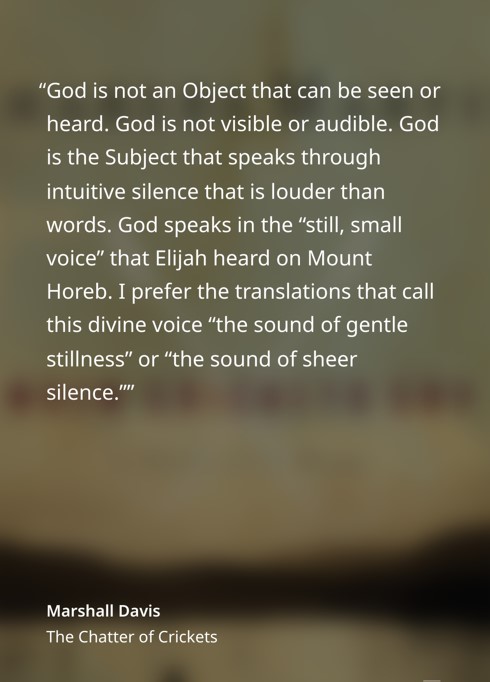Coram Deo - Living In Consciousness
In you there is a dimension of consciousness far deeper than thought. It is the very essence of who you are.
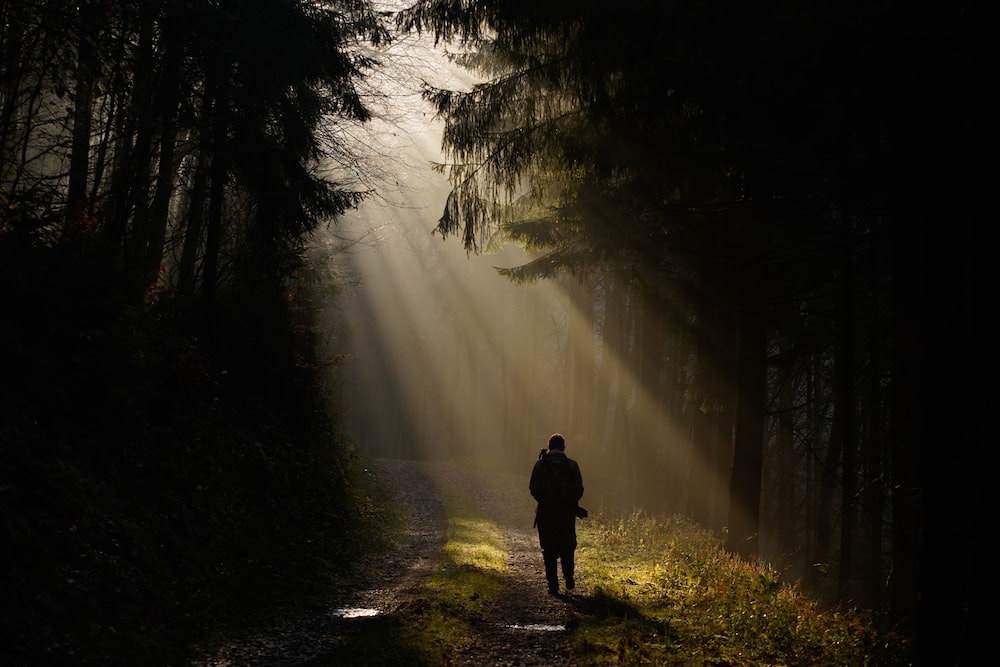
What is Coram Deo?
Coram Deo is about living in consciousness.
It is a Latin phrase which literally means “to live before God”, "to live in the presence of God" or "to live face-to-face with God".
The phrase first appeared in the late 4th Century Latin version of the Bible known as "The Vulgate".
I am not about to preach you a sermon! But I do want to share some insights into this ancient phrase that firstly transcend its original 4th Century Christian origins and secondly, may have a practical and transformative relevance to you today.
The Christian Perspective
For Christians, throughout history, the phrase has been used to describe a life that is lived in communion with God throughout the day.
In the 17th Century a monk known as Brother Lawrence, wrote a short book: "The Practice of the Presence of God".
In some ways this book was a Christian forerunner to modern books like "The Miracle Of Mindfulness" by Thich Nhat Hanh and "The Power of Now" by Ekhart Tolle
Brother Lawrence worked in the kitchen of his monastery as a kitchen porter, and in his book he describes his practice of ongoing conversation with God thoughout the day as he went about his daily duties.
Throughout his day, Brother Lawrence was living Coram Deo.
One of the key aspects of Coram Deo is that it is all about living an integrated life, a holistic life, rather than a compartmentalized life.
For readers not aligned with a Christian perspective, and who are followers of other faiths, or who are not aligned with any faith tradition, we can see this as living a daily life that is aligned with the highest consciousness.
This is article is not about metaphysical speculation and it most definitely is not about propagating any particular faith or belief system. I reference Christianity and Buddhism only because they are the two approaches I am most familiar with.
In this article we are taking a closer look at:
- What Coram Deo means.
- Three "Pegs In The Ground" to understand why this matters.
- Two "Frames of Reference" for how you can live this.
- Key Benefits of why you would want to live like this
In summary:
The Buddhist Perspective
For Buddhists we can frame Coram Deo as Nirvana which is a state of consciousness free of all suffering and freedom from wrong perceptions, a state of perfect inner stillness and highest happiness.
The late zen master Thich Nhat Hanh gave us a lucid and profound explanation that defines nirvana as the cessation of all suffering, and how our suffering comes from our wrong perceptions.
He explains how the practise of mindfulness can enable us to look deeply and remove our wrong perceptions.
Based on my own experience, it is my view that mindfulness practise offers the most direct route to learning how to stop thinking, quieten your mind, transcend duality and allow space for the world of consciousness to emerge.
A Unified Approach
This practice of present moment awareness transcends words and form and the everyday realm of duality and is experienced in meditation and contemplation.
But - and this is a very big "but" - it can also be experienced, within the everyday realm of duality, in relationship.
I have found that Christianity - which functions almost exclusively within the world of duality - offers you relationship with consciousness and the experience of it within your heart.
Coram Deo - 3 Pegs In The Ground
The Truth May Come In Strange Disguises
This article is about perspectives not beliefs.
However, I must declare a personal belief that I hold which is that contained within the insights of some faith traditions are universal truths which have wider relevance and practical application beyond any one tradition.
To take this one step further, I hold a belief that truth is generic and universal, however, whenever and wherever it manifests, and we can find it in all sorts of seemingly unlikely and unconnected places.
Last but not least, I must must declare one final belief and that is that truth may come in strange disguises, but if the filters in our minds are set wide enough, we may see it re-expressed in a different framing, context and language.
Finally, I concur with Buddhas's observation in the Alagaddupama Sutta that beliefs are there as a guidance and are not immutable certainties. Beliefs are there to serve a purpose and to be released when that purpose is served.
Having got that out in the open I want to share 3 perspectives that have helped me to understand why Coram Deo matters:
- We live in a participatory universe of energy.
- The impermanent self - "you" are the ghost in the machine of "your" brain.
- Beyond the content of your mind you are so much more than you think you are.
[1] We Live In A Participatory Universe Of Energy
We live in a universe of energy - literally and not just metaphorically.
I
am not a scientist but my understanding is that the further quantum
physicists investigate the nature of reality, the more evidence they are
finding that at the most fundamental level everything is energy.
According to the late John Wheeler, physicist-philosopher and Nobel Prize winner we are also living in a participatory universe.
After a life-time of thinking about our quantum reality, Wheeler's fellow physicist Niels Bohr observed that Man is inside the equation, simply by being there. Man is “entangled” in this "participatory universe”.
We have to be very careful as
non-scientific lay-people not to infer
conclusions that science does not yet support.
For example, science does not support the so called "law of attraction" that suggests that the reality we experience is driven by what we think.
At the experiential level I suspect that many of us can see from our direct experiences of life that there is a co-relation between our dominant inner energy states and the outcomes that we experience in life, and quite probably in some instances a cause and effect relationship. The difficulty with this is that it always hard to prove.
What I feel we can prove is that the quality of our responses
to the events in our lives has a determining effect on the outcomes that
we experience, and that this effect is cumulative and compounding.
We live in a universe of Matter, Energy AND Consciousness
The participatory universe is more than matter and energy as former Apollo 14 astronaut Edgar Mitchell explains in the following short video clip that we live in a universe of Matter + Energy + Consciousness: "What Is Consciousness"
Physicist Max Planck won the Nobel Prize in Physics in 1918 for the discovery of energy quanta. In 1931 during an interview with UK newspaper "The Observer" Planck made the following observation about consciousness:
“I regard consciousness as fundamental. I regard matter as derivative from consciousness. We cannot get behind consciousness.”
Building on Max Planck’s
observations about consciousness we should also include the considerable
body of work of organisations such as the Institute of Noetic Science founded by former Apollo 14 astronaut Dr Edgar Mitchell and its ongoing
exploration into the nature and potentials of consciousness using
multiple ways of knowing, including intuition, feeling, reason, and the
senses.
This is a massive subject and we have barely scratched the surface here, but to summarise:
[2] The Impermanent Self - "You" Are The Ghost In The Machine Of "Your" Brain
As human beings we are skating on very thin ice with our sense of self and certainty about "how things are" and what we like to think is "reality".
Here is a sobering thought: What if all that you know and work so hard to achieve in this life and what if all that constitutes your sense of self dies when you do?
We experience our conscious mind as a single unified entity but from a neurological perspective it isn't. The fact that you experience your conscious mind as a single unified entity is a chimera.
Your brain is a collection of distinct modules, performing specific functions, but from a neurological persective it is not a unified system.
There is no permanent self.
So why does your conscious mind seem to you to be one thing when the underlying mechanics of your brain are separate, localised and specialised?
Your self awareness can best be referred to as an emergent property of your
brain."Emergent properties"
arise from the
collaborative functioning of a complex system, but do not belong to any
one part
of that system.
"You" have no substance, "you" really are the ghost in the machine of "your" brain. This isn't a speculation, this is the neurological reality. Think of this as the "hardware" perspectve of "you".
- There is no independently originating "you".
- There is no central rational command centre.
- These things are the emergent properties of the complex interconnection, and interaction, of multiple modules within your brain.
- The moment the blood stops pumping round your brain "you" and everything associated with "you", your "self consciousness", all of it ceases to exist. This non substantive "you" is dead.
From the "software" perspective of you there is no singular "self". When you refer to "myself" you are not referring to one singular entity but a very complex amalgam of many different aspects of your self sometimes referred to as the 'internal family of selves' - also known as 'sub-personalities'.
The ego
When we talk of "myself" this is the conventional way of referring to our self image which is in fact the ego's construction of its sense of self.
I
find it helpful to imagine the ego as our operating system and
absolutely essential, in the same way "Windows 11" is essential for
successful functioning of our laptops. It thinks it controls everything.
But
as with "Windows 11", however clever it is, it is just a piece of
software. So when we say me, myself or I, metaphorically, think of
“Windows 11" with self awareness!
The egoic mind is not an energetic being, it is not holistic and has no capacity for consciousness and interconnection.
The egoic mind's intention and expectation is inextricably linked to circumstance.
When you engage in mindfulness practice and look deep enough and persist with the inquiry "Who am I?" you will find that there is nothing there.
This is not a concept. It is an experience. It is a realisation.
There is nothing there except an "operating system" of largely automatically pre-programmed thoughts and responses that runs the bag of bones that we like to think of as "me".
Ultimately there is no separate "I" in the sense of the ego as a stand alone entity that is distinct from everything and everyone else. It’s an illusion, another big lie, and it dies when we physically die.
Like the characters in "The Matrix" we are fooled by the illusion that what we see is how things really are.
We are perpetually fooled by the illusion of a separate self.
[3] Beyond The Content Of Your Mind You Are So Much More Than You Think You Are
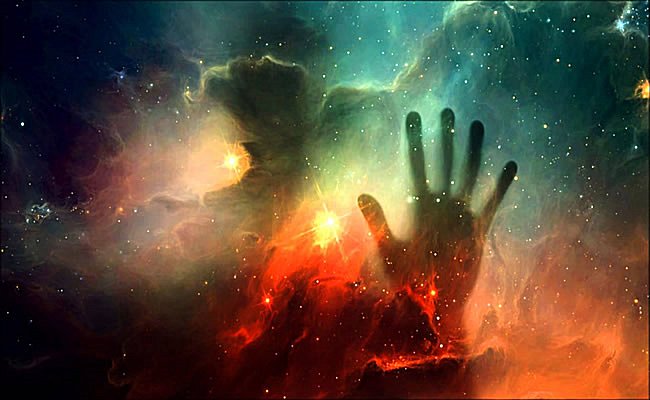
Now we need to take on board an additional perspective, our natural perception is seriously skewed. What we perceive as reality is incomplete.
The physical world that you see and live in and mistake as reality – or all there is – is only 50% of the equation. This is the world of the mind and exists in the foreground and is experienced through our senses.
Then there is the other 50% the background - the world of consciousness, the realm of energy, the spiritual world - from which all form emerges into the foreground, and into which it eventually dissolves.
This background – is also referred to as Emptiness, the Tao, God, the "ground of all being" - Consciousness.
The physical world of form could not exist without this background. This is summed up in the Buddhist saying: "Form is emptiness, and emptiness is form." And also in the saying of Christian theologians (Tillich et al): "The ground of all being."
Let's just take a moment to recap on what we have considered so far:
- You live in a universe comprising matter, energy and consciousness.
- You have an impermanent self; there is no independently originating "you"; "you" are an emergent property of the complex interconnection, and interaction, of multiple modules within your brain; "you" cease to exist the moment the blood stops pumping round your brain.
- You are seriously handicapped in that your senses can only detect half of what is there.
- You can only see the foreground, the physical world of form, in which all objects and matter appear.
- You miss the background, the realm of consciousness, from which all form emerges and into which it eventually dissolves.
- This inability to see the background, the realm of consciousness, is why you live in your mind and experience the illusion of a separate self and feel disconnected.
There are two fundamental truths that you may not realise or experience:
- Everything is connected in consciousness.
- Consciousness is within you, consciousness is who you really are.
That you may not experience this does not alter its reality and immediately leads to the obvious questions: "How do I engage with consciousness"; "How do I get started?" and the most basic question: "Why would I want to do this?".
Coram Deo - 2 Frames of Reference

[1] Creating Space for Consciousness
The first and most fundamental step to creating space for consciousnes is to stop thinking. Yeah right! Stop thinking!
Why do we find this so hard, if not impossible?
# The Thought Stream - Your Thinking Mind Runs On Autopilot
It is impossible to turn this mind off.
It just is what it is and it does what it does.
It is constantly spewing out a stream of thoughts some connected and many seemingly unconnected.
# Your Observing Mind Gets Fused With This Thought Stream
Your observing mind is your awareness. Some people call this the witnessing mind. It does not engage in judging, analyzing, story telling, etc. It is simply aware.
We make the mistake of identifying with our thinking mind by saying "I am angry" rather than saying "I feel anger".
As Mark Manson has observed: "Most of our emotional and psychological stress happens because our Thinking Mind and our Observing Mind are fused."
- The first step in learning how to stop thinking is to understand that you are not your thoughts - what matters is not the content of your thoughts but your relationship with your thoughts.
- The second step and the fastest way to unfuse your thinking mind and your observing mind is to accept your thoughts.
- The third step and the best longer term approach to gaining awareness and control of your thoughts is by the practice of mindfulness.
Here are 6 key mindfulness practices outlined by Eckhart Tolle in "The Power of Now". These exercises will enable you to witness or observe (without narrative or analysis):
- The recurring or autonomic nature of your thoughts and feelings.
- The triggers that give rise to
these thoughts.
- The energetic states associated with these repetitive negative thoughts.
- To watch how your very own inner "personal-map-of-reality" filters your interpretation of your experience.
- To see how you become immersed in and identified with your thoughts and feelings.
- To learn how to stop thinking – to turn your thoughts off - at will, and to live a life Coram Deo.
There are many articles on this site on all aspects of mindfulness. To access these use the site search tool.
[2] Engaging With Consciousness
Engaging with consciousness takes place in your heart not your head.
Everyone of us has a place in our heart where there's a space that is home to the greatest love of all.
You may not know it, but it is there within you.
This love transcends everything we think we know about the world of form, the realm of thought, ideas, beliefs and dogma.
It transcends all sense of "myself", "my life", "my story", everything that we conventionally think of as "me", in fact it transcends everything that seems to us so real.
This love is consciousness, the ground of all being, it is not out there, it is in you, it is part of you, it is you.
I refer to this as The Greatest Love
The greatest love transcends the duality of our everyday life that we all see as reality.
Yet paradoxically, we can have a relationship with it within this everyday experience of duality.
It is transcendent to, and yet inherent within, the everyday world of duality.
You can experience it and connect with it in your heart.
'The greatest love' is:
- The true nature of consciousness.
- The ground of all being.
- Inside of you.
- The felt sense of sunyata / emptiness.
- The awakened heart, the felt sense of the buddha nature.
- The felt sense of the Tao.
- The felt sense of God.
- The divine within.
- The true nature of your spirit.
- Immortal.
- A love that transcends the duality of your day to day lived experience.
- Experienced relationally within duality [i.e. you can have a relationship with it].
- The most all encompassing and fulfilling experience of love that you can ever have.
- The love that will never let you go.
- Not a concept or a belief, nor is it a dogma or religion. This is a lived experience.
- Deeper than a parent's love, closer and more intimate than a lover's love and more supportive than the very best friend.
- Your greatest guide and mentor.
- The greatest love that you can ever know.
- The greatest love that most people will never know.
How and where do you find the greatest love?
How do you have a relationship with the greatest love?
The Key Benefits Of Coram Deo
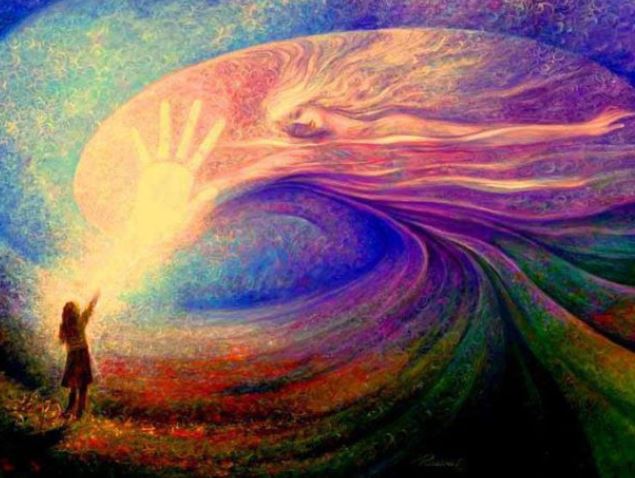
I want to close this article and leave you with a model of Consciousness that is based on my direct experience and that is framed for your heart.
- Think of Consciousness in metaphorical terms as a loving mentor or parent/carer always watching your back and offering guidance.
- Imagine that Consciousness knows everything about you, and always has your best interests at heart, and if you trust it will never let you down will give you what you need. [It may not always be what you want, but it is always what you need.]
- Imagine a Consciousness that seeks deep relationship with you, deeper than any human relationship you have ever experienced or ever will.
- Imagine a Consciousness that loves you more than you can ever know. The expression of this love is deeply and intensely personal to you and in ways that you may not yet be able to imagine, and this includes: guidance, fulfilment, deep joy, lasting peace and eternal life.
- Imagine a Consciousness that knows your life purpose and that knows what you need to fulfil that purpose before you ask.
Further Reading [with resources]:
Third Party Resource
Experiencing God Directly by Marshall Davis (Book Summary)
The Brain, The Self & Consciousness
The Wise Advocate - Helping You Achieve The Very Best Outcome
Who Is In Charge Of Your Brain - How Not To Be Stupid
Everything Is Connected And Why You Don't Feel It
The Illusion Of A Separate Self - Windows 11 With Self Awareness!
Deus Ex Machina - Consciousness Is Now The God In Our Machine
The Greatest Love - The Most Important Relationship You Will Ever Have
Context
Living In A Participatory Universe
What Is Spirituality - Don't Throw The Out Baby With The Bathwater!
Its My Life Or Is It - Everything Does Not Revolve Around Me
Seeing Is Believing - Or Do You See What You Believe?
The Red Pill - This Is What Will Happen After You Take It
Tao Te Ching - Connecting To Your True Source Of Power
Living With Your Thoughts
You Are Not Your Thoughts - 4 Steps To Dealing With Them
Living With Your Thoughts - 4 Tools To Help You
Can You Stop Thinking? Discover The Joy Of A Quiet Mind
Mindfulness
How To Practise Mindfulness - Drop The Cushion, Focus Your Mind On NOW
Freeing Yourself From Your Mind - 6 Key Practices From Eckhart Tolle
Next Article:
The Power Of Patience - Why You Need The World's Toughest Quality
Return from: "Coram Deo" to: Walking The Talk
Or Return to: What Is Spirituality?
LATEST ARTICLES
The Battle For Your Mind - How To Win Inner Freedom In A Digital Age Of Distraction
 From External Events to Inner Events. We often think of “events” as things that happen out there: the traffic jam, the rude comment, the delayed email reply. But what truly shapes our experience is wh…
From External Events to Inner Events. We often think of “events” as things that happen out there: the traffic jam, the rude comment, the delayed email reply. But what truly shapes our experience is wh…How to See Your Thoughts Without Becoming the Story
 A Practical Guide to Thought-Awareness. You can spend your life inside the stories of your mind without ever learning how to see your thoughts clearly and objectively. Most of the stuff we tell oursel…
A Practical Guide to Thought-Awareness. You can spend your life inside the stories of your mind without ever learning how to see your thoughts clearly and objectively. Most of the stuff we tell oursel…The Collison Decision Matrix - A Simple Framework for Better Choices
 The Collison Decision Matrix Is A Practical Everyday Thinking Tool. Most of us spend a surprising amount of time worrying about decisions. From small ones such as what to wear, what to eat, what to te…
The Collison Decision Matrix Is A Practical Everyday Thinking Tool. Most of us spend a surprising amount of time worrying about decisions. From small ones such as what to wear, what to eat, what to te…The Power Of Asking The Right Question
 The Power Of Asking The Right Question Lies In The Quest For Insight. To experience the power of asking the right question you must develop the practice of asking questions. The best way to improve th…
The Power Of Asking The Right Question Lies In The Quest For Insight. To experience the power of asking the right question you must develop the practice of asking questions. The best way to improve th…Site Pathways
 Here is a site pathway to help new readers of Zen-Tools navigate the material on this site. Each pathway is based around one of the many key themes covered on this site and contain a 150 word introduc…
Here is a site pathway to help new readers of Zen-Tools navigate the material on this site. Each pathway is based around one of the many key themes covered on this site and contain a 150 word introduc…How To Live With Contradiction - Beyond Thought Let Stillness Speak
 A major impact on so many peoples' lives is the situational contradiction of unfilled realistic expectations. So where does all this leave us? Well here we are, with mental equipment that is more lim…
A major impact on so many peoples' lives is the situational contradiction of unfilled realistic expectations. So where does all this leave us? Well here we are, with mental equipment that is more lim…How To Trust The Process Of Mindfulness - Right Now
 In mindfulness, the process isn’t some distant goal — it's what is happening right now. When we talk about how to trust the process of mindfulness the credibility of the process is heavily dependent…
In mindfulness, the process isn’t some distant goal — it's what is happening right now. When we talk about how to trust the process of mindfulness the credibility of the process is heavily dependent…Inner Mastery For Outer Impact - Mental Clarity For Effective Action
 Insights only matter if they translate into consistent action. In a world crowded with quick fixes and motivational soundbites, the theme “Inner Mastery for Outer Impact” calls us to something more e…
Insights only matter if they translate into consistent action. In a world crowded with quick fixes and motivational soundbites, the theme “Inner Mastery for Outer Impact” calls us to something more e…The Wise Advocate - Helping You Achieve The Very Best Outcome
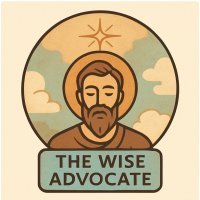 The focus of your attention in critical moments of choice either builds or restricts your capacity for achieving the best outcome. When we talk of 'The Wise Advocate' its easy to think of the consigl…
The focus of your attention in critical moments of choice either builds or restricts your capacity for achieving the best outcome. When we talk of 'The Wise Advocate' its easy to think of the consigl…Trust The Process - Beyond The Cliche
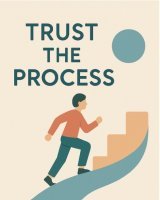 The phrase "trust the process" has become a cliche, the woo-woo mantra of the "self help" industry. Those three little words feel like they ought to mean something useful but hidden behind them are a…
The phrase "trust the process" has become a cliche, the woo-woo mantra of the "self help" industry. Those three little words feel like they ought to mean something useful but hidden behind them are a…The Dopamine Delusion - Why Anticipation Beats Achievement
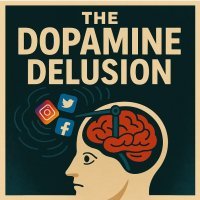 The thrill we feel is not in the having, but in the wanting. The more we have, the more we want. The more things we acquire and the easier things get for us, the more discontent we feel. The more spo…
The thrill we feel is not in the having, but in the wanting. The more we have, the more we want. The more things we acquire and the easier things get for us, the more discontent we feel. The more spo…The Power Of Silence Is Experienced In Your Use Of Language
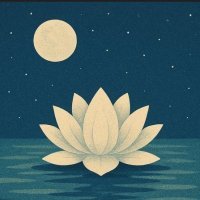 Practise the "Beneficial Neurological Delay" for optimal comprehension. The power of silence is experienced in your use of language, specifically: - How you formulate the words you use to think and in…
Practise the "Beneficial Neurological Delay" for optimal comprehension. The power of silence is experienced in your use of language, specifically: - How you formulate the words you use to think and in…
